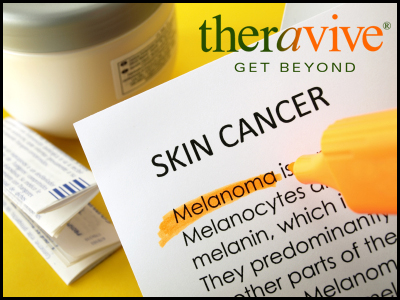 Healthy skin is about more than how you look. Your skin is your largest organ. It helps protect your body from infection, regulate your body temperature and makes vitamin D to keep your bones healthy and moods stable.
Healthy skin is about more than how you look. Your skin is your largest organ. It helps protect your body from infection, regulate your body temperature and makes vitamin D to keep your bones healthy and moods stable.
Healthy skin is achieved by eating properly, getting plenty of exercise, avoiding harmful exposure to the sun or tanning beds, as well as cigarettes and other harmful, toxic substances. Sleep is also important to healthy skin.
Skin Cancer
Healthy skin means doing everything possible to prevent skin cancer. Skin cancer is the most common form of cancer in the US, according to the American Cancer Society. New cases of basal and squamous cell skin cancer are diagnosed in 3.5 million people each year in the US. 76,000 cases of melanoma are diagnosed annually. Melanoma is the most deadly of the three forms of skin cancer.
Skin cancer is one of the most preventable forms of cancer. There are steps you can take to reduce your risk of skin cancer. Most skin cancer comes from overexposure to the sun, but some people develop it from UV rays from tanning beds and other man-made sources.
Types of Skin Cancer
There are actually several types of skin cancer, but there most common are keratinocyte cancers and melanomas. Keratinocyte cancers develop from cells of the same name – the most common cells in the skin. Basal and squamous cell skin cancers fall into this category.
Melanoma cancers develop from melanocytes. These are the cells that make the brown pigment in your skin. Non-cancerous moles are growths that result from melanocytes.
These skin cancers are treated differently, so it is important for you to seek medical care if you see a growth or dark spot that concerns you. Melanomas can be deadly.
Basal and squamous cell cancers are usually found on the upper body in areas that get a lot of sun exposure, like the head and neck. These skin cancers usually don’t spread to other parts of the body and are not life threatening in most cases. However, they need to be treated early to prevent them from becoming larger. If left unattended, these cancers can invade other tissues and nearby organs, causing damage or disfigurement. Some of these may spread (metastasize) if not treated, and occasionally may be fatal.
Melanomas are often found on the trunk in men and the legs in women. The face and neck are also common sites for these cancers. These cancers are not as common as basal and squamous cell cancers, but may be far more serious. All skin cancers are almost always curable in the early stages. However, if melanoma is left alone, it is much more likely to metastasize where it can be very hard to treat, ie. to the lungs.
Who is at Risk for Skin Cancer?
Although people with light skin are at greater risk of sun damage, darker-skinned people can also be affected. This includes African Americans and people who are Hispanic. Darker pigmentation often prevents sunburn, which is thought to increase your risk of skin cancer, including melanoma. However, UV exposure can cause skin cancer without sunburn.
Other risk factors to be aware of:
· People who had skin cancer previously
· People with a family history of skin cancer
· People who have a lot of moles, irregular or large moles
· People who have freckles and get sunburned
· People with fair skin; green or blue eyes; red, blonde or light brown hair
· People who live at high altitudes where the UV rays are stronger
· People who vacation or live in the tropics
· People who work inside then gets over-exposed to the sun on weekends
· Those who are outdoors a lot
· People with lupus or other autoimmune diseases
· People who have organ transplants
· Those who take certain medications that lower immunity or make you sensitive to sunlight
The American Cancer Society recommends that people wear long sleeves and hats when exposed to direct sun for long periods. They also highly recommend that people use sunscreen every day, not just when planning to be outside for long periods.
Staying in the shade as much as possible when outside is another way to protect your skin. While they caution people about UV exposure, the American Cancer Society also warns that we should not avoid spending time outside as an hour of exercise each day is critical to good health – including healthy skin.
_______________________________________________________________________________________________________
"Healthy Skin Matters." Healthy Skin Matters. National Institute of Arthritis and Musculoskeletal and Skin Diseases. Web. 07 Nov. 2013.
"What Is Skin Cancer?" What Is Skin Cancer? American Cancer Society. Web. 07 Nov. 2013.
About the Author
 LuAnn Pierce, LCSW
LuAnn Pierce, LCSWI am a clinical social worker, therapist and writer. Currently, I offer online therapy and coaching services to people in Colorado and Wyoming. As a provider for the CO Department of Vocational Rehabilitation and the National MS Society, my expertise in counseling people who have disabilities and chronic illness is considerable. I have written for About.com, DailyRx.com, Theravive.com, GoodTherapy.org, SelfHelpMagazine.com and contribute to several other online health and mental health sites.
Office Location:
19th & Dahlia
Denver, Colorado
80220
United States
Phone: 303-910-2425
Contact LuAnn Pierce, LCSW
Professional Website:
http://HireASocialWorker.com